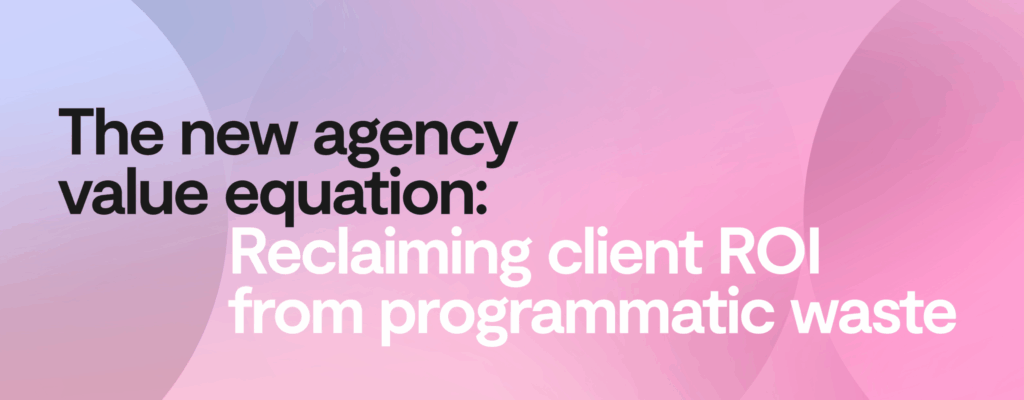- Blog
- Privacy
Four things we learned about user opt-out and ad serving
Up to 50% of European users are choosing to opt-out of data collection as a result of regulatory enforcement, whereby businesses must make it just as easy to reject data collection as it is to accept data collection. But publishers hold one-to-one relationships with their users. They have an opportunity to rebuild consumer trust by capturing consent responsibly and working with enablers of data (who can operate as data processors) rather than intermediaries acting as controllers. Publishers are now challenging their partners and showing more interest in what these partners are doing with data to ensure publishers don’t risk the…

Up to 50% of European users are choosing to opt-out of data collection as a result of regulatory enforcement, whereby businesses must make it just as easy to reject data collection as it is to accept data collection. But publishers hold one-to-one relationships with their users. They have an opportunity to rebuild consumer trust by capturing consent responsibly and working with enablers of data (who can operate as data processors) rather than intermediaries acting as controllers.
Publishers are now challenging their partners and showing more interest in what these partners are doing with data to ensure publishers don’t risk the trust they have with their users. The opt-out user is a challenge that impacts the entire advertising ecosystem, so we gathered ad servers to discuss the challenges of consent practices for publishers. The session was held under Chatham House Rule, so these event highlights are anonymised.
The closed-door session built on our User Consent webinar where the ICO stated that consumers hitting “reject all” cookies in Chrome “doesn’t mean you can’t serve advertising,” but “means you haven’t convinced those customers that the way you’re handling their data is something that they want to have happen.” With this sentiment in mind, here are four things we learned about the consent challenge:
1. Ad servers have a solution.
For publishers concerned, the ad servers at the roundtable session confirmed they have a solution to enable publishers to monetise their unconsented traffic. Importantly, these ad servers have made it easy for their users to adopt their solutions, as there is no additional work required.
2. Ad servers are validating with regulators.
Solutions and products developed by the ad servers at the roundtable have input from regulators and are designed with compliance in mind. However, it was also mentioned that ad servers could be more open about this, highlighting the processes and involvement of regulators.
3. Proving the value of unconsented impressions is an opportunity.
CPMs for unconsented impressions have dropped by 30%. However, the value of the impressions should be the same as the inventory has stayed the same. New solutions will bring back parity from consented to unconsented. Publishers should package up this inventory and share insights with advertisers to demonstrate the value of this inventory and of working directly with publishers. It’s about publishers bringing value to direct-sold deals.
4. The consent and regulatory landscape is complex.
Adtech and regulators should come together more frequently because collaboration is essential when building privacy-compliant technical solutions that benefit all entities. Roundtables and events that bring together the ICO with other stakeholders are important for market education and ensuring adtech is building solutions that protect consumer choice.
We want to continue the conversation around users opting out of sharing their data for advertising to create a path forward for publishers and advertisers.
Permutive’s solution is Affinity Cohorts, which leverages insights from consented audiences to predict their affinity to content, allowing publishers to target across URLs with a chosen affinity, maximising addressability and ensuring publishers can continue to deliver relevant ads For more info, request a demo or email [email protected]
You may be interested in
From scale to accountability: The new agency value equation
Learn MoreThe curation revolution: Rebuilding trust and transparency in programmatic
Learn MoreKeep going, there's more to uncover.
From scale to accountability: The new agency value equation
Discover how leading agencies are rebuilding efficiency and accountability in programmatic media. Learn the 3-step blueprint to reclaim ROI, reduce waste, and deliver verifiable performance through data-enriched PMPs.
The curation revolution: Rebuilding trust and transparency in programmatic
Discover how leading agencies are rebuilding efficiency and accountability in programmatic media. Learn the 3-step blueprint to reclaim ROI, reduce waste, and deliver verifiable performance through data-enriched PMPs.
The performance paradox: Why programmatic efficiency is broken
Discover how leading agencies are rebuilding efficiency and accountability in programmatic media. Learn the 3-step blueprint to reclaim ROI, reduce waste, and deliver verifiable performance through data-enriched PMPs.
The new agency value equation: Reclaiming client ROI from programmatic waste
Discover how leading agencies are rebuilding efficiency and accountability in programmatic media. Learn the 3-step blueprint to reclaim ROI, reduce waste, and deliver verifiable performance through data-enriched PMPs.
Curation as a revenue diversification strategy: Lessons from The Arena Group
The Arena Group is finding new ways to take control of its data and revenue. Discover their powerful new approach centered on curation.
How Acxiom and Fundamental Group are solving for the Outcomes Era
Acxiom’s Ruowen Liscio and Fundamental Group’s Angus Maclaine discuss solutions for the Outcomes Era in advertising. Discover how predictive targeting, curation, and AI are delivering results in a privacy-first world.





